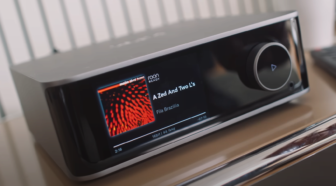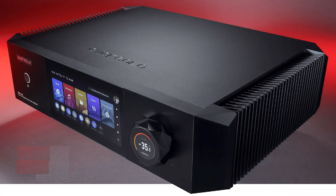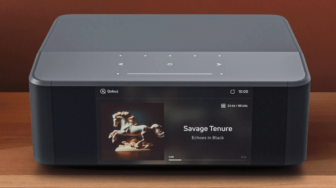CAMBRIDGE AUDIO EXN100 NETWORK PLAYER Review
Priced slightly above the CX series, Cambridge Audio presents two new devices – 7Review begins with the test of the EXN100 streamer, which is said to leave hardly any wishes unfulfilled.
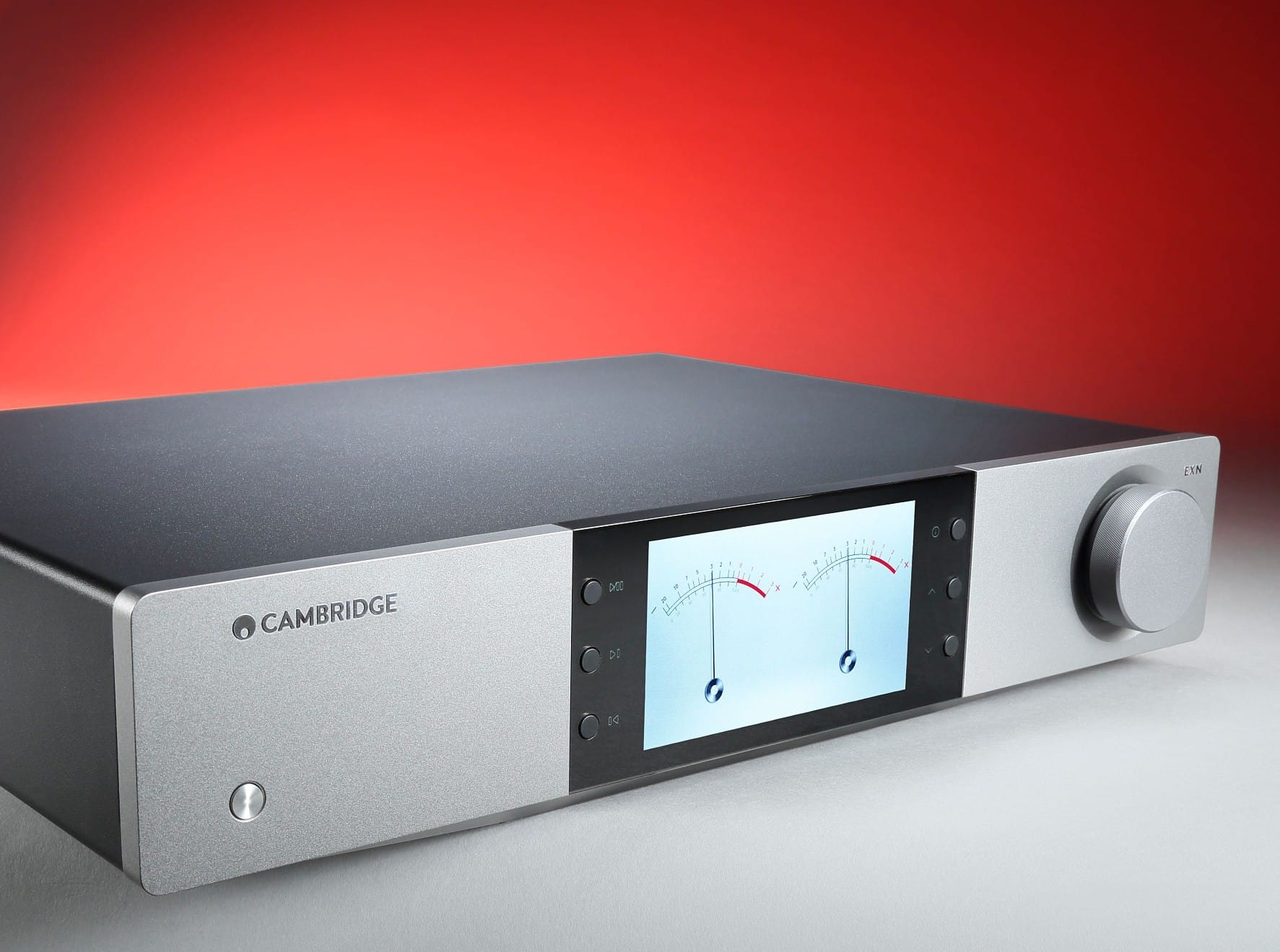
Cambridge Audio from England has recently focused on updating existing models, such as adding new components to the CX series. With two new devices – a modern duo of streamer and amplifier – the manufacturer has now launched a completely new series called “EX.” Following the Cambridge naming scheme, the devices are easy to identify, with a slightly upgraded but understated design and a price point just above the CX series.
We begin by testing the new network player in the duo, the EXN100, which belongs to a competitive price range with an MSRP of approximately $1,950. While competitors experiment with new concepts, the Cambridge appears more classic at first glance – not a bad thing, as it makes it almost the prototype of a standard 43 cm Hi-Fi streamer.
This new network player is also very similar to the smaller streamer from the same company, the CXN100, which debuted earlier this year as the successor to the CXN V2. In our test, the CXN100 impressed us by doing many things right: numerous inputs and outputs, an excellent control system through the in-house StreamMagic system, including an app, and, of course, great sound – especially for its relatively affordable price of just over $1,150.
TEST DEVICES
Streamers: Volumio Motivo, Eversolo DMP-A8, Cambridge Audio CXN100
Integrated Amplifiers: T+A R2500 R, Cambridge Audio EXA100
Speakers: Gauder Akustik Capello 40 DV
Cables: Cardas, Silent Wire, Van den Hul
A slightly more expensive competitor from the same company, the EXN100, logically aims to build on the CXN100’s features while staying far from the flagship Edge NQ for over $4,300. Positioned between the entry-level MXN10 and AXN10 at $550 each, the EXN100 belongs to the mid-range, where customers have high expectations.
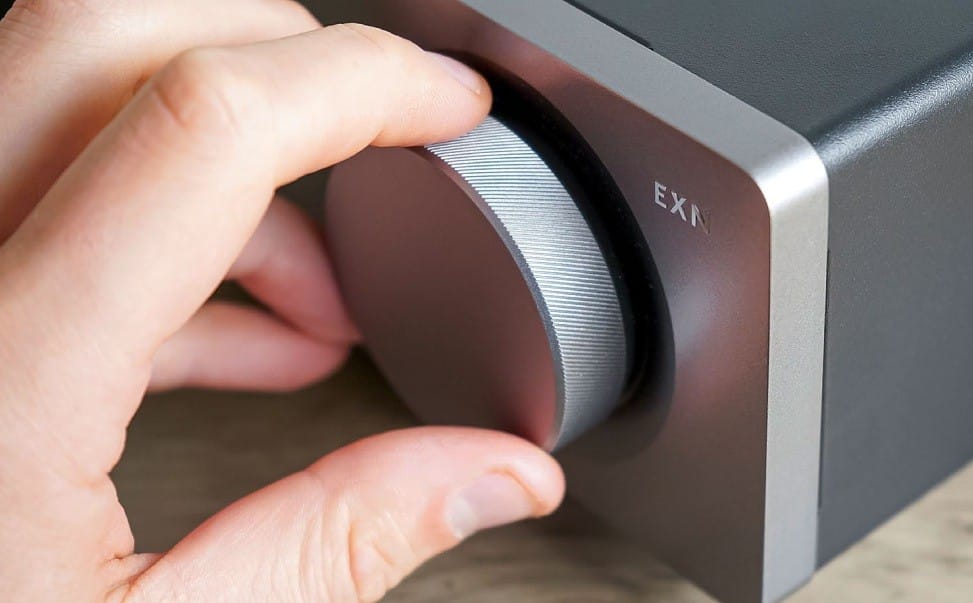
The EXN100 aims to meet these expectations brilliantly by building on the CXN100’s strengths. The rear connection panel of both players is very similar, making the EXN100 well-equipped but not vastly superior to the CXN. Specifically, the EXN100 outputs its streamed and analog-converted signal via RCA or XLR to amplifiers or active speakers. For those using an external DAC, it also offers optical or coaxial digital output.
Exemplary Connectivity
The Cambridge streamer’s DAC can also be used independently via optical and coaxial digital inputs, while computers can connect through USB-B. The USB grounding can be separated from the device grounding, which Cambridge claims reduces noise. Additionally, a switch links the audio section ground with the device ground to minimize interference, which we did not encounter during testing.
To serve as a living room hub, the EXN100 includes an HDMI eARC connection, allowing TVs to connect to the streamer, its DAC, and its preamp. This practical feature is missing from the smaller CXN100.
Another distinction is the slightly larger screen of the EXN100 compared to its less expensive counterpart. While it functions similarly, displaying album covers or a VU meter for a classic look, its size is a notable upgrade. Three buttons on each side allow for basic control like Play/Pause and input selection.
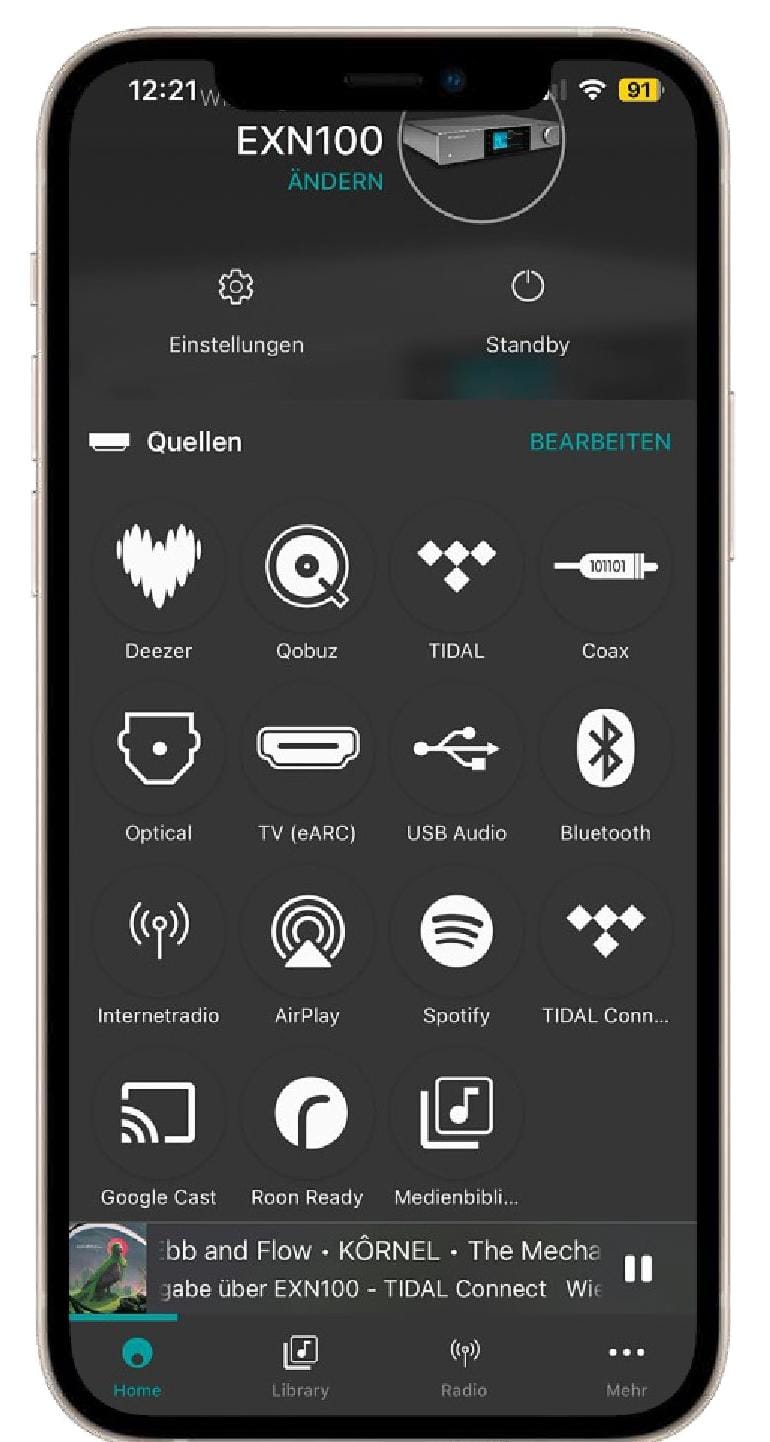
The minimalist front panel is complemented by a robust aluminum volume dial with a textured surface for grip, controlling volume when the preamp is active.
Like many streamers in all price ranges, Cambridge doesn’t include a remote control with the EXN100. While this is somewhat disappointing, the extensive app control compensates for this omission in most cases.
Paired with the compatible EX amplifier EXA100 – likely designed to compete with the CXA81 Mk II – the streamer can be controlled via the amplifier’s remote, available separately. This setup would likely delegate volume control to the amplifier. Cambridge also includes “Control Bus” ports and a cable for integrated control between the streamer and amp.
For synchronized power on/off with non-Cambridge devices, the EXN100 features trigger in and out ports.

New Duo: EXN100 and EXA100
The EXN and EXA can connect in various ways, digitally or analog. Experimentation is the best way to find the optimal setup. However, we offer a tip: both devices feature DACs – the EXN has the “9028Q2M,” while the EXA uses the “9018K2M.” Both components come from the high-quality supplier ESS, with the EXN’s DAC being a higher-class model.
Using the EXN’s DAC adds more detail and refinement to the sound. Ultimately, good sound depends on the entire package, including digital processing, analog output stages, and clean signal paths. Inside the EXN, we found an exemplary, neatly arranged design typical of streamers.
The EXN also supports multiple digital protocols, including Spotify and Tidal Connect, UPnP, Bluetooth, Airplay, Chromecast (now Google Cast), and Roon. Its app handles music from home servers and internet radio, with preset options available.
Audiophile, Spacious, Controlled
Our listening test with the CXN100 concluded it was audiophile, and the EXN100 delivers the same, offering controlled and spatial sound. It handles all music genres effortlessly, from Nirvana’s “Come As You Are” to Deep Purple’s “Throw My Bones.” Even complex tracks like Nick Drake’s “River Man” retain their ethereal charm.
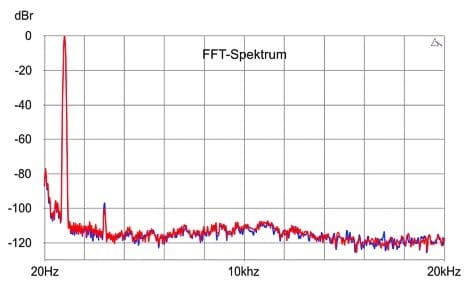
Specs
Cambridge Audio EXN100
| Category | Details |
|---|---|
| Product / Price Range | Streamer / $1,100 to $2,200 |
| Website | www.cambridgeaudio.com |
| Price (in USD) | $1,950 |
| Dimensions (W x H x D) / Weight | 43 x 9 x 30.5 cm / 4.1 kg |
| Distributor in Germany | Cambridge Audio Germany |
| Contact Phone Number | +49 180 99810 |
Performance
| Criteria | Weight (%) | Score (German Scale) | Remarks |
|---|---|---|---|
| Sound | 40% | Excellent (1.4) | Natural, powerful, spacious, well-controlled |
| Measurements | 5% | Excellent (1.4) | Excellent signal-to-noise ratio, low distortion |
Detailed Measurements
| Criteria | Details |
|---|---|
| Signal-to-Noise Ratio (Digital Null) (dB) | Excellent (105) |
| Output Voltage (V) | Excellent (2.07) |
| Output Impedance (Ohms) | Good (RCA: 80 / XLR: 128) |
| Distortion Factor (-9 dBFS, %) | Good (0.0074) |
| FFT Spectrum | Excellent |
Features
| Category | Details |
|---|---|
| Digital Inputs / Outputs | Coaxial, optical, USB, HDMI eARC (IN), coaxial, optical (OUT) |
| Digital Filters Switchable | No |
| Outputs | RCA, XLR |
| Adjustable Output | Yes |
| Headphone Output | No |
| Music Formats | Wide range, including Hi-Res up to 32-bit/768 kHz, DSD 512 |
| Build Quality | Good |
| Streaming Standards | Airplay, Chromecast, Spotify Connect, Tidal Connect, Roon Ready, UPnP, DLNA, Internet Radio, Qobuz, Tidal, Deezer |
| USB Data Storage | Supported |
Usability
| Criteria | Score (German Scale) | Remarks |
|---|---|---|
| Remote Control / Manual / App | Satisfactory (3.1) | No remote control, good app functionality |
| Device Controls / Display | Good |
Service & Environment
| Criteria | Details |
|---|---|
| Warranty (Years) | 2 |
| Packaging | Cardboard, plastic film around device |
| Power Consumption (Standby / Idle) | 0.5 W / 8.7 W |
| Hard Power Switch | No |
Verdict
In conclusion, the EXN100 can be seen as a luxury version of the CXN100: a larger screen, HDMI connectivity, equally excellent sound, and the same lack of a remote control. The CXN100 remains the price-performance champion, offering much of the EXN’s advantages for significantly less. However, for those willing to spend more and appreciate the upgrades, the EXN100 is a great choice – particularly when paired with the new CXA100 amplifier.



